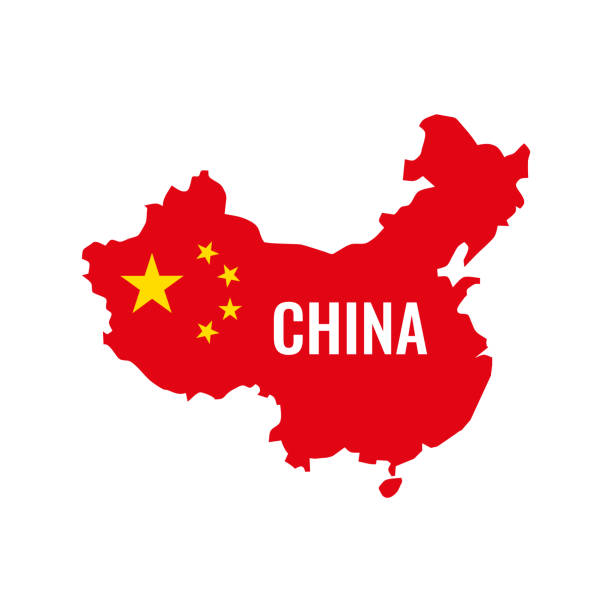China’s artificial intelligence (AI) industry, which was experiencing rapid growth internationally, suffered a major setback when the globally acclaimed Chinese AI chat application, Talkie, was abruptly removed from the US iOS App Store.
This development sparked a widespread debate on data privacy, national security, and the growing influence of Chinese technology companies on the international market.
Talkie’s journey hasn’t been smooth. In China, the app’s earlier version, Glow, faced backlash for explicit content, leading to its removal and subsequent rebranding.
Users soon realized that their conversations were being closely monitored, a stark contrast to the free-wheeling chat experience in the U.S.
- ENGLAND: Snow disrupts air travelling
- SYRIA: 101 killed in fighting between pro-Turkey, Kurdish forces – Monitor
Talkie’s Chinese counterpart, Xingye, was pulled from app stores due to explicit content and had to relaunch with strict content filters, as reported by the Wall Street Journal. Xingye was launched for the Chinese market.
What may have gone wrong with Talkie was made obvious by several reports emanating from the U.S. There are serious allegations against the chatbot for being a cover-up for the Chinese ruling party. Experts on Chinese affairs alleged that the Chinese Communist Party (CCP) has backed Talkie’s rapid expansion into Western markets, and the app carries hidden factors of China’s unrestricted war against the West. Data privacy, national security, and content moderation are primary reasons behind the app’s withdrawal. Tang Jingyuan, a China affairs commentator and columnist, said he believed that the Chinese regime’s influence has been instrumental in Talkie’s rapid rise in the U.S. market.
The most ironic thing about the app is that it was ranked among the top six entertainment apps in July, and five months later it was removed from the App Store, raising suspicion over its credibility. There has been no explanation from MiniMax so far, leaving users and industry experts to speculate on the exact reasons behind the decision. This development echoed previous instances where Chinese apps, such as TikTok, had faced stringent regulatory actions in Western markets due to similar apprehensions.
The underlying apprehensions surrounding Chinese technology firms have intensified scrutiny over how these applications handle user data. The U.S. government and regulatory bodies have become wary of the potential for data surveillance and misuse, especially given laws in China that compel companies to share information with the government upon request. This concern is not unfounded, as data collected from millions of users can be exploited for various purposes, including espionage and propaganda.
Moreover, the content moderation capabilities of AI-driven apps like Talkie are under the scanner of the U.S. and other Western countries. The ability of such platforms to generate and disseminate misinformation or harmful content poses significant risks, particularly when targeting younger, more impressionable audiences. The ethical implications of users forming emotional dependencies on AI companions further complicate the narrative, raising questions about mental health and the societal impact of pervasive AI interactions.
According to an article in Toolify.ai, visitors could easily access numerous underage and child scenarios within the Talkie app. These interactions are nothing short of an atrocity, making the app more of a child abuse simulator than a storytelling platform. Another alarming thing about the app was that Talkie lacked responsibility and accountability from its developer, Subs Up Ltd. The app’s platform has zero checks and balances regarding the characters and content available for users to engage with. This unrestricted access to inappropriate material raises serious concerns about the app’s ethical standards and the potential harm it may cause to its users.
The app has come under severe criticism as users can freely engage in conversations with these characters, regardless of their age. Although there are some restrictions for non-subscribers, they are temporary and easily bypassed, rendering them ineffective.
Experts said that a financial motive might be behind the luring content on Talkie. The more users interact with underage characters, the more these characters are served to them. This suggests that the app may be financially incentivized to cater to the desires and fantasies of its users, regardless of the ethical implications, stated the article.
But in China, Talkie’s success was seen as a success story in the field of AI innovations. In November, at the 2024 World Internet Conference (WIC) Wuzhen Summit, Chinese industry analysts noted how Chinese emerging unicorns such as Shanghai-based MiniMax, Beijing-based Moonshot AI, and 01.AI were seizing new opportunities in the global market, seeking to leverage their peculiar strengths in AI innovations.
As geopolitical tensions escalate, the U.S. and other democratic nations are prioritizing national security over commercial interests, leading to more aggressive actions against foreign tech entities deemed potential threats.

 Join Daily Trust WhatsApp Community For Quick Access To News and Happenings Around You.
Join Daily Trust WhatsApp Community For Quick Access To News and Happenings Around You.
